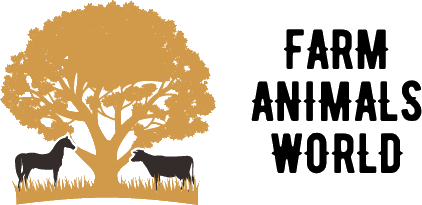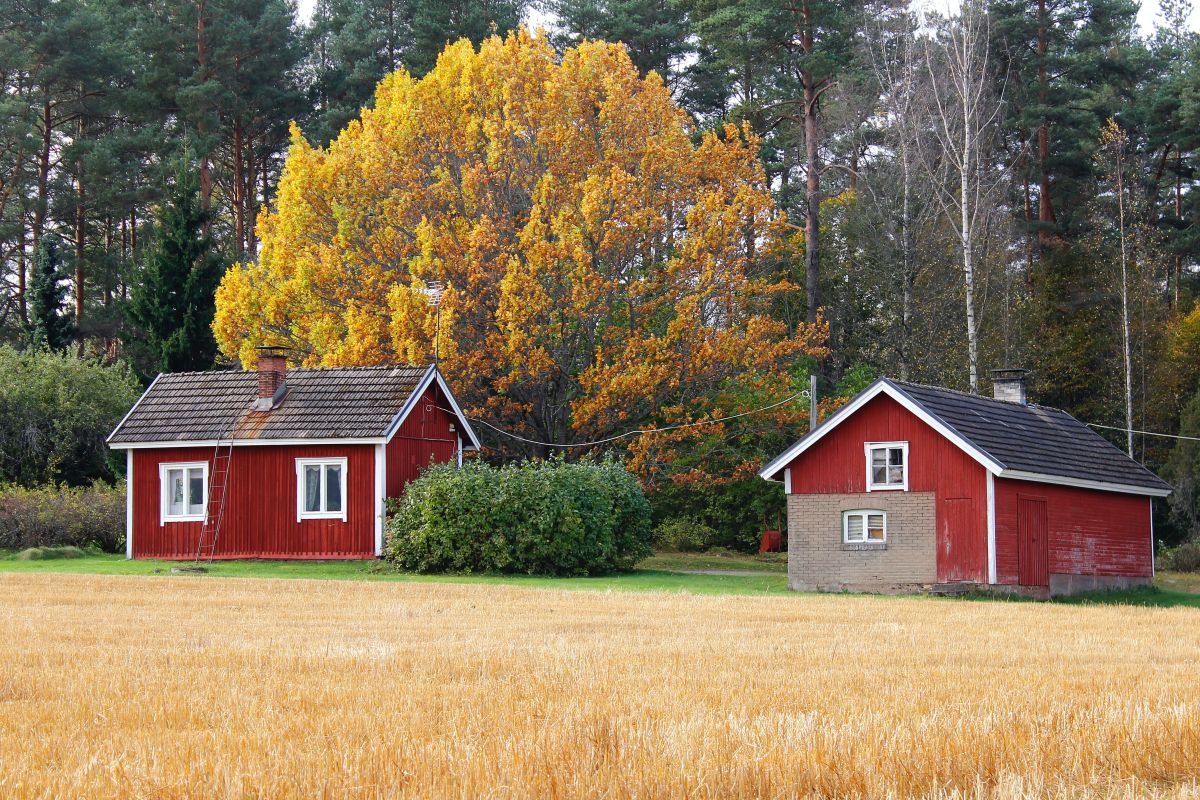Are you dipping your toes into the world of farming? It’s not as daunting as you’d think.
From the subtle clucking of chickens to the gentle bleating of goats, finding the right farm animal for you is a journey. This guide will walk you through the basics, helping you make an informed decision.
Let’s dive into the heart of farming, exploring the best farm animals for beginners and the joy each one can bring to your farmland.
Key Takeaways
- Clarify farming goals: self-sufficiency, profit, or both
- Perform a land assessment to determine available space for animals
- Research different chicken breeds and their egg production rates
- Master goat breeding for a robust herd and dairy production
Understanding Your Farming Goals
Before diving into choosing your farm animals, it’s crucial you understand what your farming goals are. This process, known as goal clarification, involves thinking about what you want to achieve with your farm. Are you aiming for self-sufficiency, profit, or both?
Next, you need to perform a land assessment. Figure out how much space you have and what kind of animals it can support.
Financial planning is also essential. Can you afford the costs of raising, feeding, and caring for the animals?
Consider the climate of your area. Some animals fare better in certain environments than others.
Understand your time commitment. Farming needs dedication and hard work.
Lastly, familiarize yourself with local regulations about keeping livestock.
The Basics of Animal Care on a Farm
While embarking on this rewarding journey of raising farm animals, you must grasp the basics of animal care on a farm. Feeding techniques are fundamental, ensuring each animal gets the required nutrients for optimal health. Shelter considerations are equally important, providing each species with a safe and comfortable environment.
The breeding basics involve understanding the mating cycles and gestation periods of your livestock. Seasonal care is about adapting to changing weather conditions, whether providing shade in summer or warmth in winter.
Animal health isn’t just about feeding and shelter; it includes monitoring for signs of disease and knowing when to call a vet. Lastly, you must familiarize yourself with emergency procedures, such as what to do if an animal is injured or falls ill suddenly.
Chickens: The Perfect Start for Novice Farmers
You’re starting your farming journey, and chickens, with their low maintenance and high productivity, are the perfect place to begin.
Various chicken breeds offer diverse egg production rates, and understanding this is key.
Researching coop designs will help you provide your flock with a safe, comfortable home.
Also, learning about common chicken diseases and how to prevent them is vital.
Feed choices significantly impact their health and productivity, so it’s critical to choose wisely.
Lastly, brooding basics, the process where a hen incubates her eggs, is another essential aspect to grasp.
Chickens may be your first step into farming, but with careful planning and understanding, they can be an enjoyable, profitable venture.
Ducks: An Easy and Profitable Choice
Ducks are a straightforward and profitable choice if you want to branch out in your farming endeavor. With various duck breeds, choosing the right one is crucial. Pekins, for instance, are hardy and known for their meat benefits. When it comes to feeding ducks, they’re low-maintenance, enjoying a diet of grains, greens, and insects.
Now, duck shelter is important. They need protection from predators and harsh weather, so a secure pen works well. Duck health issues aren’t common, but regular checks are necessary to ensure they thrive. Duck breeding is another aspect to consider, as it can boost your farm’s productivity.
In short, ducks are a fun, easy, and profitable addition to any beginner’s farm.
Goats: Small in Size, Big in Benefits
So, you’ve mastered duck farming and are now ready for a new challenge – let’s turn to the small but mighty goat. Proper goat breeding can ensure a robust herd, contributing to dairy production.
Goats are low maintenance, but remember health management; regular checkups are key. A sturdy goat shelter is essential, protecting them from harsh weather.
Feeding goats is simple; they thrive on hay, grains, and greens.
Understanding goat behavior is crucial, too. They’re social creatures, thriving in groups. They also have an insatiable curiosity, so their environment should be secure and stimulating.
If you manage these elements, you’ll find that these small creatures can deliver big benefits.
Sheep: Worthwhile for Wool and More
While goats may be a fantastic starting point, don’t overlook sheep as they’re not only valuable for their wool but also offer numerous other benefits for beginner farmers.
Understanding sheep behavior is crucial for effective flock management. Sheep breeds vary, so choose one that matches your wool production goals.
The lambing process requires attention, but it’s rewarding when done correctly. Stay alert for common sheep diseases and follow proper grazing management strategies to maintain a healthy flock.
Sheep provide more than wool; they can be raised for meat, milk, and even companionship. They’re hearty, adaptable, and can turn grass into valuable products.
Pigs: A Rewarding Challenge for Beginners
You’re ready for a rewarding challenge, and pigs could be the perfect addition to your beginner farm. Their nutrition needs aren’t complex: a diet of grains, fruits, and veggies keeps them healthy. Breeding practices, though, require careful timing and monitoring. It’s crucial to understand pig behavior, especially during the breeding period.
Pig health should be a top priority. Regular vet checkups and a clean, spacious environment go a long way. The housing needs of pigs include shelter from the elements and ample space to roam.
Profitability analysis is essential, too. Pigs can provide a good return on investment with their meat but be prepared for associated costs like food and healthcare. It’s a challenge, but with dedication, pigs can be a rewarding part of your farming journey.
Cows: An Investment for Long-Term Farming
Although they’re a more significant commitment than pigs, if you’re willing to invest time and resources, cows can provide a steady income for long-term farming.
You’ll need to understand cow breeds, as some are better for dairy farming basics and others for beef production. Holsteins excel in milk production, while Angus cows are known for beef.
Milking procedures and cattle health issues are part of your daily routine. Regular checks for signs of illness and proper milking hygiene are crucial.
You’ll also manage their diet, using sustainable grazing practices to maintain pasture health.
Cows require dedication, but with careful management, they’re an investment that can yield rich rewards in the dairy and beef sectors.
Bees: Small Creatures With Big Impact
In small-scale farming, you’ll find that bees, despite their tiny size, have a huge impact on crop health and productivity. With a bee’s lifespan averaging six weeks, their existence, though short, is crucial. They’re not just for honey production! Bees communicate through a ‘waggle dance,’ directing others to nectar-rich plants.
Preventing bee diseases is essential. Keep your hives clean and monitor for signs of illness. Planting bee-friendly plants can help, as they provide nutrition and reduce exposure to harmful pesticides.
Never underestimate the ecological impact of bees. They’re vital pollinators responsible for one-third of the food we eat. So, when you’re planning your farm, consider bees. They’re small creatures with a significant role.
Rabbits: The Ideal Low-Maintenance Farm Animal
Not only are rabbits soft and adorable, but they’re also one of the most accessible farm animals you could choose to raise. Different rabbit breeds have unique characteristics, so you’ll want to pick the one that suits your needs.
Housing rabbits is simple; they need a secure, clean hutch and room to move around. Their diet mainly consists of hay, pellets, and fresh veggies, but rabbit health concerns like obesity or tooth decay can arise from improper feeding.
Rabbit breeding can be lucrative but requires careful management. Lastly, selling rabbit products, from meat to fur, can make a tidy profit.
Making Your Final Farm Animal Selection
Surprisingly, you’re now on the verge of making your final farm animal selection, but remember, it’s crucial to consider the needs of the animal and your ability to meet them.
Take into account animal temperament, some breeds are more docile than others, making them easier to manage.
Your farm infrastructure must also suit your chosen animal. Do you have the proper fencing, shelter, and feeding area?
Consider the veterinary costs, as different animals have varying healthcare needs.
Next, think about breed selection. Some breeds require specific diets, impacting your overall expenses.
Lastly, remember to check local regulations about keeping farm animals.
With these considerations, you’re ready to make an informed decision.
Frequently Asked Questions
What Are the Legal Requirements for Owning Farm Animals?
Ironically, you don’t just buy a pig and call it a day. You’ll navigate zoning regulations, secure animal permits, follow breeding laws, meet welfare standards, adhere to noise ordinances, and handle import restrictions.
How to Handle Farm Animal Illnesses and Diseases?
To handle farm animal illnesses, you must understand disease prevention, adhere to vaccination schedules, meet nutritional requirements, conduct regular vet checkups, consider herbal remedies, and implement animal quarantine when necessary.
How Can One Ensure the Safety of Farm Animals From Predators?
You’ll need predator-proof fencing, secure nighttime housing, and effective predator deterrents to ensure your farm animals’ safety from predators. Farm dogs, regular patrols, and alarm systems can also provide necessary protection.
How Much Time Does It Require Daily to Care for Each Type of Animal?
You might think it’s overwhelming, but it isn’t. Daily care varies per animal: feeding routines, shelter maintenance, breeding basics, grooming, training, and socialization techniques. It can take from 30 minutes up to several hours.
What Are Some Ways to Handle the Farm Waste Produced by These Animals?
You can manage farm waste using composting methods and nutrient recycling. It’s about turning waste into resources. Sustainable practices like biogas production from manure can reduce waste and provide energy. It’s efficient manure management.
Conclusion
Choosing the right farm animal as a beginner can feel overwhelming, but remember, every seasoned farmer started where you are now. Whether it’s the simplicity of chickens, the profitability of ducks, the benefits of goats, or the long-term investment of cows, each animal brings unique rewards.
And let’s not forget the impactful bees and low-maintenance rabbits. Trust your instincts, lean into learning, and embrace the adventure. Your farming journey is just beginning – savor every moment.

